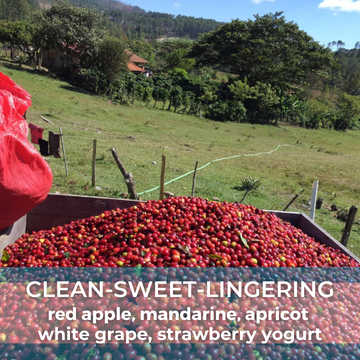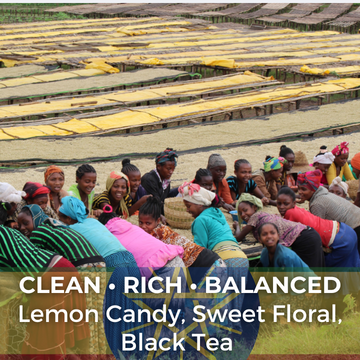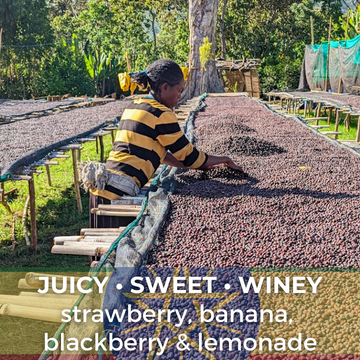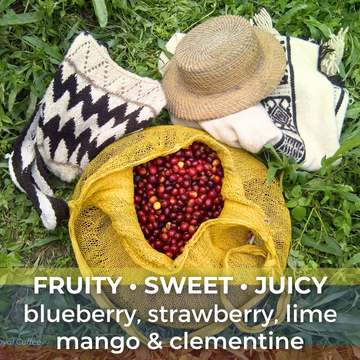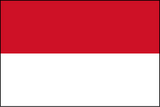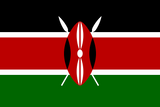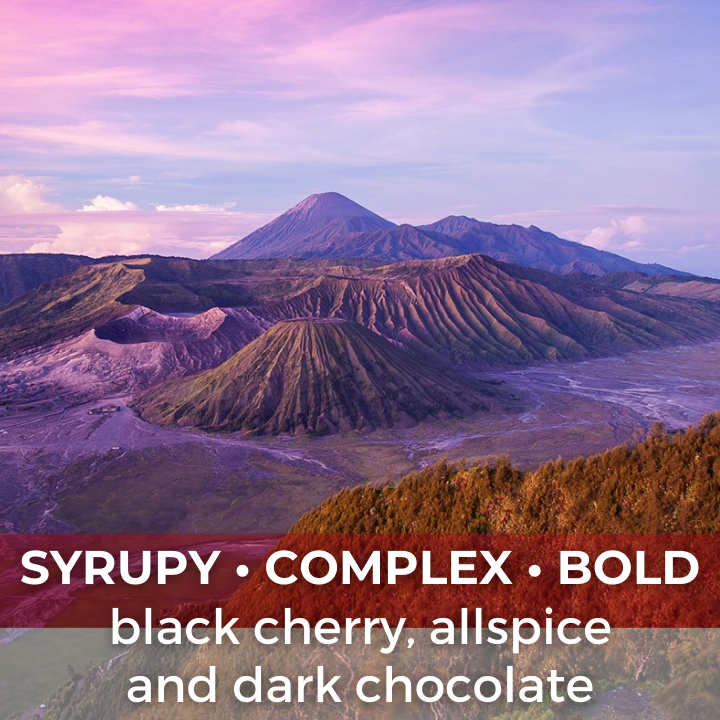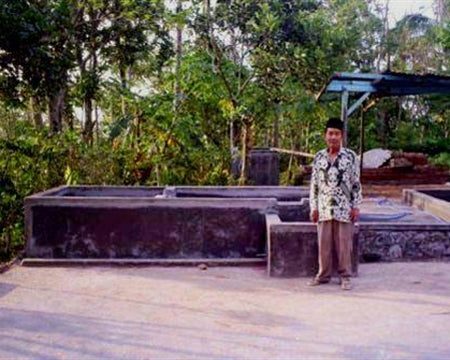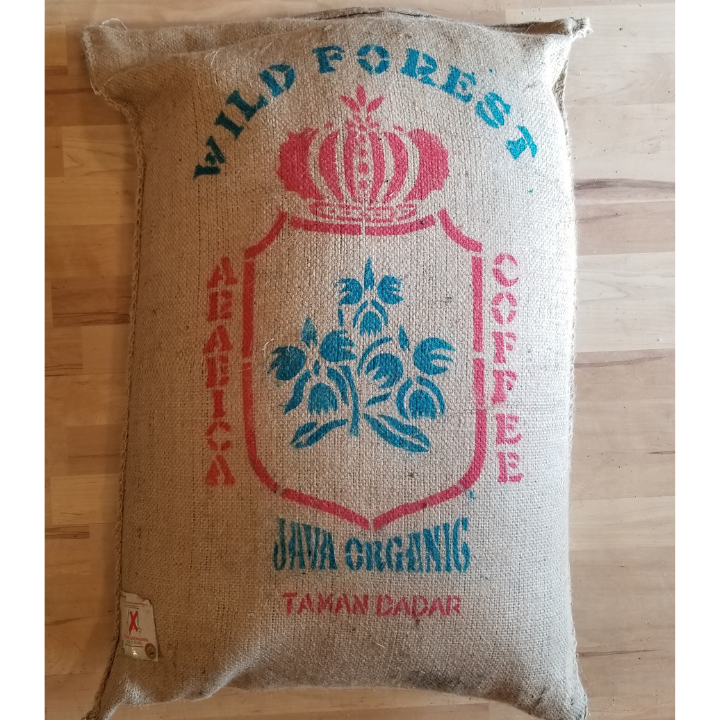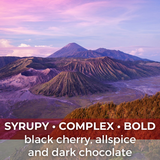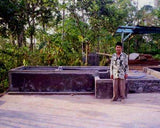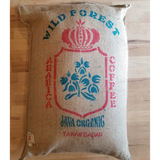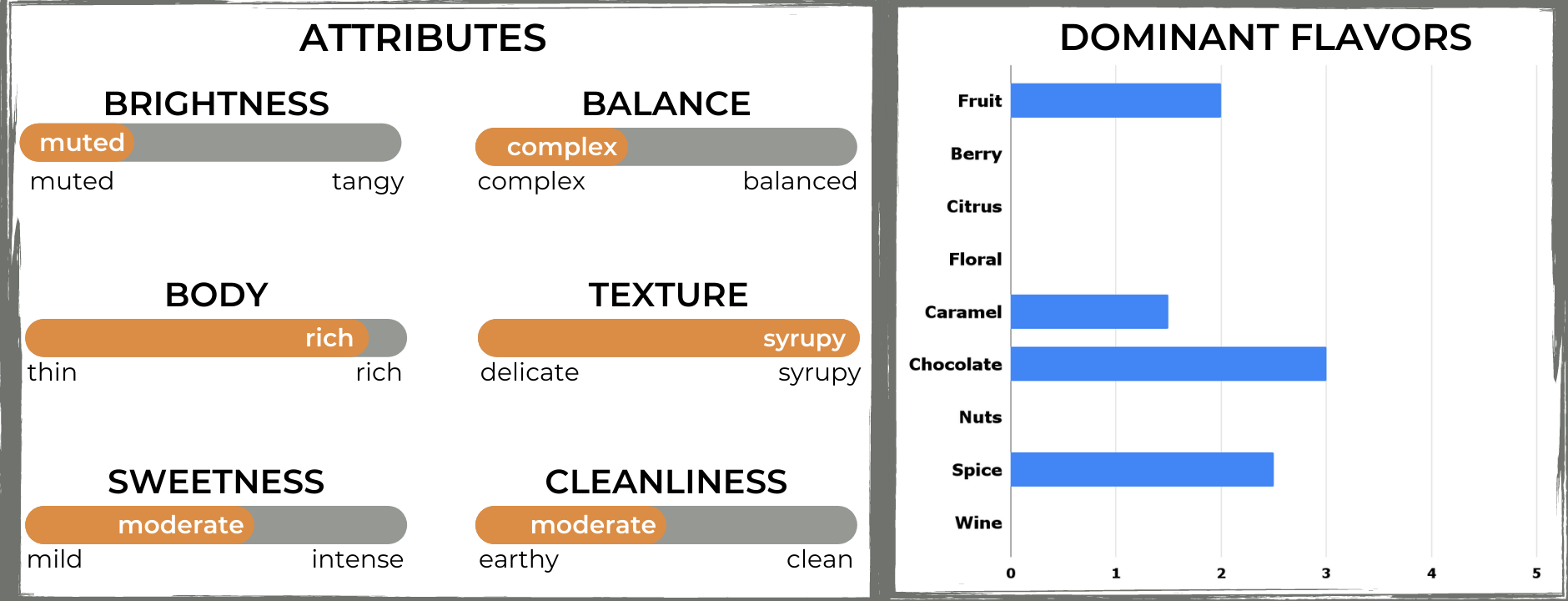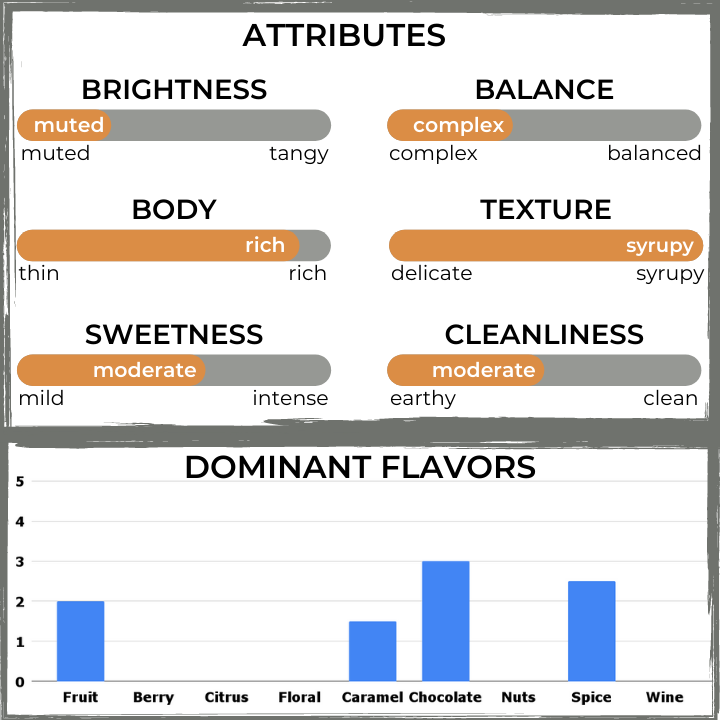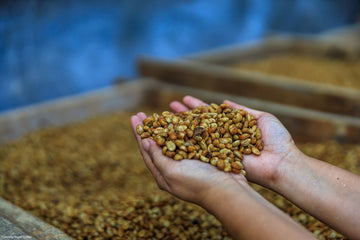Java Kayumas Taman Dadar Organic
Smallholder farmers on the Ijen Plateau grow this certifed organic coffee. It's got a rich, syrupy body and sweet flavors consisting of a complex blend of dark chocolate, black cherry, allspice and tobacco.
Any coffee labeled "estate" coming from Java is grown on a government controlled farm, and the vast majority of coffee exported from Java comes from one of these estates. Recently, however, smallholder farmers on the Ijen Plateau in eastern Java have started exporting coffee independently. Our Taman Dadar (meaning Flower Garden--the name local farmers give this area) comes from the villages of Curah Tatal and Kayumas. There is a government estate called Kayumas but it's not the same as the village. This year the Taman Dadar coffee has been certified by the Rainforest Alliance for sustainable agricultural methods and social responsibility--meaning they take care of the planet and the workers!
The most common varietal grown in the area goes by the decidedly unsexy name of "S 795", and is a Typica hybrid, which is also grown on Sulawesi, from which we offer our Sulawesi Toraja. It is grown at elevations of between 900 and 1600 meters above sea level. Although coffee grown here has been organic for generations by default, these farmers just now received official organic certification allowing them to market their coffee as such. The farms of Taman Dadar seem more environmentally friendly in another way--government farms practice mono-cultural farming while Taman Dadar farmers interspersed Erythrina, Albizia and Leucaena trees. They also grow Parkia beans, avocados, and timber trees among the coffee trees. This allows the coffee to be shade grown, leading to a slower developing, harder bean, and this translates to a little more acidity (brightness) in the cup.
This is a full bodied coffee that is suitable for darker roasting. It has the body and depth to handle sugar and cream if you are so inclined. We tasted notes of slightly bitter baker's chocolate, pine and a touch of sweet black cherry, allspice and pipe tobacco mixed with a very syrupy, rich mouthfeel. This would be a great coffee with a big pancake breakfast or would go well with a rich dessert!
Reminder! This coffee is raw, you must roast it before brewing
Arrival Date: December 8th, 2023
US Arrival: Fall 2023Acidity & Brightness: Low acidity, sweet
Balance & Finish: Complex Balance of Flavors, Lingering Finish
Body & Texture: Rich Full Body, syrupy texture
Flavors: Dark chocolate, black cherry, allspice and tobacco
Grade: Hard and Dense, Elevation 900-1600 masl
Processing: Wet-hulled (Giling Basah), hand picked, sun dried on bamboo mat
Certifications: Organic, Rain Forest Alliance
Grower: Producers from Curah Tatal & Kayumas villages located on the Ijen Plateau in Eastern Java, Indonesia
Region: Curah Tatal & Kayumas villages located on the Ijen Plateau in Eastern Java, Indonesia
Varieties: S-795 (A Typica hybrid)
Recommended Roast Range: Full City to Vienna (medium to dark)
Start with a Full City Plus (Medium Dark), or just a bit into the second crack. If you can't hear the cracks, then roast until the beans are smooth and medium dark brown with just the first hint of sheen as the oil emerges. Feel free to take it darker into Vienna (Dark) as this coffee maintains it's flavor profile quite well at darker roasts. This coffee roasts a bit unevenly, and will appear light for it's degree of roast.
Royal Coffee - "This coffee is sourced from family-owned farms located near the villages of Curah Tatal and Kayumas on the island of Java, Indonesia. In the 17th Century Java coffee was first cultivated in low lying areas, but by the late 19th Century coffee leaf rust had destroyed production, forcing new coffee cultivation into the highlands where high altitudes and volcanic soil provide perfect growing conditions. Smallholder organic coffee production is atypical of the region which is dominated by large government run coffee estates established by the Dutch in the 18th century. Taman Dadar, meaning flower garden, aptly describes the way smallholder coffee is cultivated, colorfully inter-cropped with parkia beans, avocados, erythrina, albizia, and leucaena trees, which produce food for local consumption and shade. Java Taman Dadar is wet-hulled, a uniquely Indonesian processing method in which the coffee parchment is removed before the final drying is completed, producing a hallmark Indonesian flavor."
